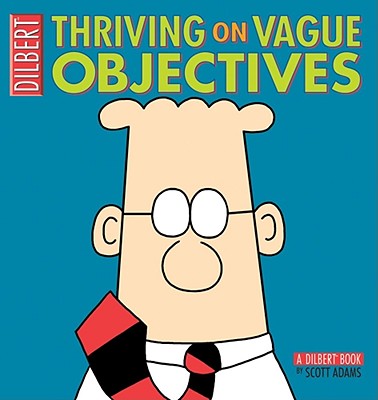August 23, 2016
Don’t Sell Us Short, Dilbert
By Bellwether

Share this article
Today the bespectacled, techie character Dilbert sprang from his longstanding, corporate comic strip existence into my inbox. In response to a piece I recently wrote about Trump’s character deficit and his disconnect with the movement for social emotional learning in education, a colleague forwarded this Wall Street Journal article that highlights thoughts from the cartoon’s creator, Scott Adams.
My article discussed how educators should double down on working with children to enhance their own social skills and emotional development, and help them identify those that deviate significantly from reasonable social norms — limiting the damage they can inflict. But Adams’ position is more futile, in keeping with the social commentary within his strip. He argues that Trump’s ability as a “Master Persuader” appeals to people’s fears and undisciplined emotions. People are incapable of thinking rationally, he suggests, and this has paved the way for Trump.
He’s partially right.
What Adams points out is pure psychology and represents what we know about cognition. In fact, it reinforces the work being done by educators (and, I might add, parents, coaches, and other caring adults) to shape our children into thoughtful human beings ruled not simply by base instincts, but also by reason and morality. Emotional, and at times, irrational response is consistent with the geography of our brain: Emotion and memory, residing in the amygdala and the hippocampus, are next-door-neighbors. Fear and emotion often drive our decision-making because they make immediate and searing impressions on our brains. Reason is not part of that equation. It’s the rationale behind so many commercials and yes, campaigns. And while fear and emotion are important to decision-making, unless we’re in a real fight or flight situation, they’re not enough.
When people stop there, they often make decisions based on limited and faulty information that reveal themselves as life gets complicated, nuanced, and real. After all, much of life is highly ambiguous and requires analysis and problem-solving. From classroom projects to organizational strategy, personal relationships to international partnerships, and parenting to policymaking, we must lean on the decision-making calculus performed in our frontal lobes, our mind’s “executive.”
This is where the support of educators can help move children from responding exclusively to emotions as they are generated to behaving with emotional regulation. Social and self-awareness, self-management, relationship skills, and responsible decision-making are competencies that develop over time within the context of a child’s environment, which includes homes and schools. Social emotional skills that engage our ability to process, synthesize, and analyze information can be taught and reinforced, allowing us to move beyond knee-jerk reactions and decisions to more considered thinking that capitalizes on the actual power of the human brain. Making an effort to develop these skills in children reaps both social and academic rewards.
The success of Adams’ Dilbert series relates to his incisive analysis of human behavior as it intersects with personal and professional politics. He then sprinkles this with a dash of humor, appealing to our emotions. That’s linking our base instincts to our executive functions.
If Dilbert can do it, so can our kids.
